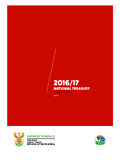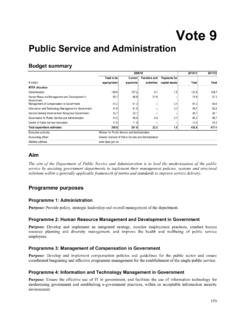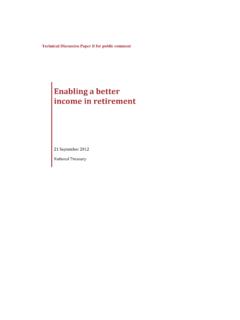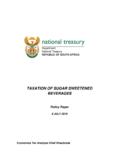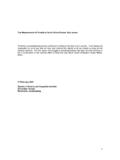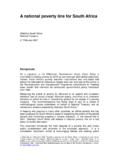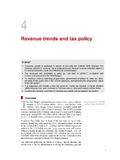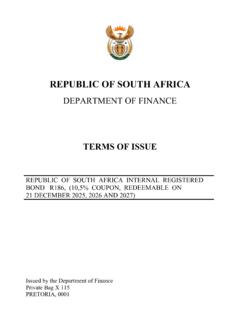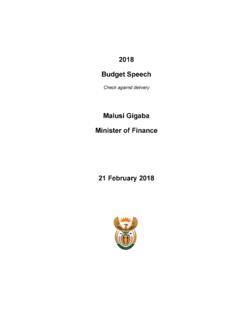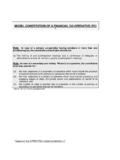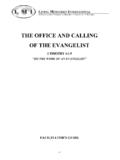Transcription of å Procedure - National Treasury
1 Complaints . Procedure 0800 662 837. Foreword As a citizen or resident of a constitutional democracy, you have rights and duties when you interact with our public administration. Some of your rights are set out in chapter 10 of our Constitution which specifically governs public administration. Chapter 10 requires our public servants and the departments in which they work to abide by democratic values and principles, including: (1) a high standard of professional ethics; (2) efficient, economic and effective use of resources;. (3) the provision of impartial, fair, and equitable service; and (4) transparency and accountability. The Office of the Tax Ombud has been established to ensure these constitutional imperatives become a reality in South Africa's tax administration. This means that the South African Revenue Service (SARS) must interact with taxpayers in accordance with these constitutional requirements.
2 My Office provides you with a simple and impartial channel to resolve a service, procedural or administrative dispute which you have not been able to resolve through SARS' complaints management channels. We offer you an independent and neutral platform to engage with SARS. We know that SARS endeavours to foster a strong tax compliance culture in line with this chapter 10 imperative. Where you the taxpayer have fulfilled your tax compliance obligations, we are confident that we will be able to mediate, conciliate and/or investigate the factual situation of your dispute and, where possible, secure a resolution. We are here to listen to you and to work with SARS for service excellence as well as procedural and administrative fairness. Judge Bernard Ngoepe South African Tax Ombud 2.
3 An independent and impartial redress channel The Office of the Tax Ombud was created by sections 14. and 15 of the Tax Administration Act, No. 28 of 2011 (TAAct). The Tax Ombud is appointed by and reports directly to the Minister of Finance. The term of office is three years and can be renewed. The role is independent of SARS and its mandate executed impartially. The Tax Ombud plays a unique taxpayer complaints resolution role and aligns with the Public Protector; both exist to ensure administrative justice by being a check on the exercise by government and its agencies of their authority. In the case of the Tax Ombud, its' focus is SARS. Mandate Section 16(1) of the Tax Administration Act, Act No. 28 of 2011 The mandate of the Tax Ombud is to review and address any complaint by a taxpayer regarding a service matter, or a procedural or administrative matter arising from the application of the provisions of a tax Act by SARS.
4 Mission To facilitate justice in South Africa's tax administration system by providing taxpayers with an expeditious, independent, impartial and fair redress channel. Vision The Tax Ombud is an effective and efficient instrument for the respect, promotion, fulfilment, and protection of taxpayer rights and responsibilities. We strengthen taxpayer confidence in tax administration and voluntary compliance with their tax obligations. Motto Fairness at All Times . 3. Principles Accountability - administrative justice requires that taxpayers have a rational and fair reason for decisions made and actions taken by the South African Revenue Service. Our Office also has a duty to provide the same. Transparency - fairness requires that information and criteria used by SARS and our Office to inform decision making be made available to taxpayers.
5 Efficiency - our Office has a duty to ensure a prompt resolution for complaints by following procedures that do not duplicate or contradict each other and cause additional administrative burden for taxpayers. Effectiveness - ensuring that our case management system identifies bona fide cases and adequately reviews them before referring them to SARS will increase the probability of a fair resolution for the taxpayer. Honesty - as an independent and impartial redress channel for taxpayers, we assist taxpayers who act honestly in relation to their tax obligations. Confidentiality - the Tax Ombud holds all communications with taxpayers in strict confidence unless authorised otherwise. 4. Frequently Asked Questions When can I approach the Office of the Tax Ombud? As a taxpayer you can lodge a complaint with the Tax Ombud after you have completed the following steps: 1.
6 You have tried to resolve your service, administrative or procedural complaint directly with SARS at the branch where your case was dealt with, or through the SARS Contact Centre and allowed reasonable time for resolution of your complaint. 2. If that did not work, you then escalated the matter to the SARS Service Monitoring Office (SSMO). See SSMO. Contact details in page 11. Only after you have exhausted these two steps can you lodge a complaint with the Office of the Tax Ombud, unless you can show compelling circumstances exist (as set out below) why these two steps cannot be followed. What can the Tax Ombud do? Section 16(2) of the Tax Administration Act, No 28 of 2011, authorizes the Tax Ombud to: Take complaints from taxpayers about a service, procedural or administrative matter arising from the application of the provisions of a tax Act by SARS.
7 Engage SARS staff to resolve complaints. Act independently in resolving a complaint. Follow informal, fair and cost-effective procedures to resolve a complaint. Identify and review systemic and emerging issues related to service matters or the application of the provisions of the Act or procedural or administrative provisions of a tax Act that impacts negatively on taxpayers. Report to the Minister of Finance his findings about the nature, SARS response and systemic resolution of complaints. Inform SARS of its assessment of individual complaints and systemic reviews. 5. Section 18(2) authorizes the Tax Ombud to determine, independently of SARS, how a review will be conducted and whether a review should be terminated before completion. Section 18(4) of the Act states that the Tax Ombud may only review a request if the requester has exhausted the available complaints resolution mechanism in SARS, unless there are compelling circumstances for not doing so.
8 What are the compelling circumstances? Section 18(5) of the Act sets out the following factors the Tax Ombud shall consider when determining if a circumstance may be compelling : If the request raises systemic issues. Exhausting the complaints resolution mechanisms will cause undue hardship to the requester. Exhausting the complaints resolution mechanisms is unlikely to produce a result within a period of time that the Tax Ombud considers reasonable. Section 18(6) of the Act requires that the Tax Ombud inform the requester of the results of the review or any action taken in response to the request, but at the time and in the manner chosen by the Tax Ombud. What does the Tax Ombud look at when reviewing a complaint? Review of complaint - when determining how a review is to be conducted and whether a review should be terminated before completion, the TO will consider such factors as: The age of the request or issue The amount of time that has elapsed since the requester became aware of the issue.
9 The nature and seriousness of the issue. The question of whether the request was made in good faith. The findings of other redress mechanisms with respect to the request. 6. Time limits - section 259(2) of TAAct sets a one year retrospective time limit for complaints: The first Tax Ombud appointed under this Act may not review a matter that arose more than one year before the day on which the Tax Ombud is appointed, unless the Minister requests the Tax Ombud to do so.. Cut-off date Since the TO was appointed September 30, 2013, with effect October 1, 2013, this means matters that arose before October 1, 2012 may not be considered by the TO unless requested by the Minister. Are there any limits to what the Tax Ombud can deal with? Yes there are clear limits on what type of complaints the Tax Ombud can take on.
10 Section 17 of TAAct set out these limitations. The Tax Ombud may not review . Legislation or tax policy. SARS policy or practice generally prevailing, other than to the extent that it relates to a service matter or a procedural or administrative matter arising from the application of the provisions of a tax Act by SARS. A matter subject to objection and appeal under a tax Act, except for an administrative matter relating to such objection and appeal. A decision of, proceeding in or matter before the tax court. Section 20(2) of TAAct makes it clear that any recommendations made by the Tax Ombud are not binding on taxpayers or SARS. This means that if a complainant is not satisfied with the Tax Ombud's outcome of their complaint, the taxpayer reserves their right to pursue other redress channels.
